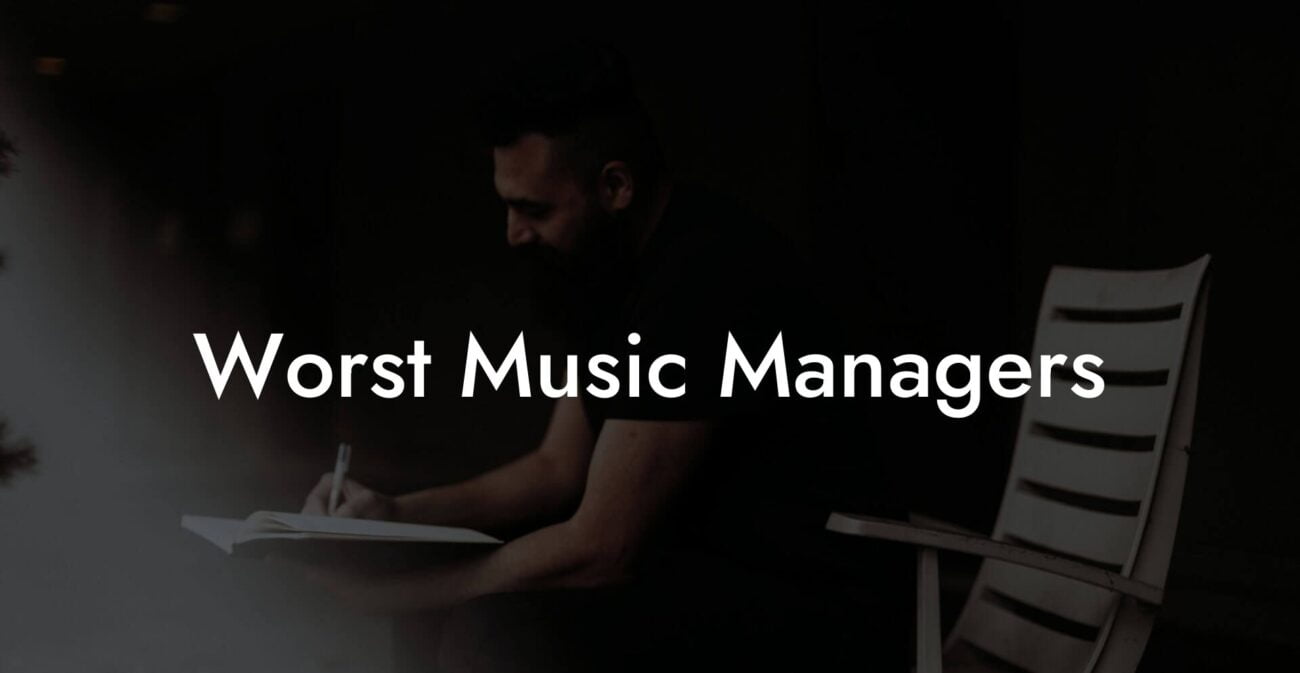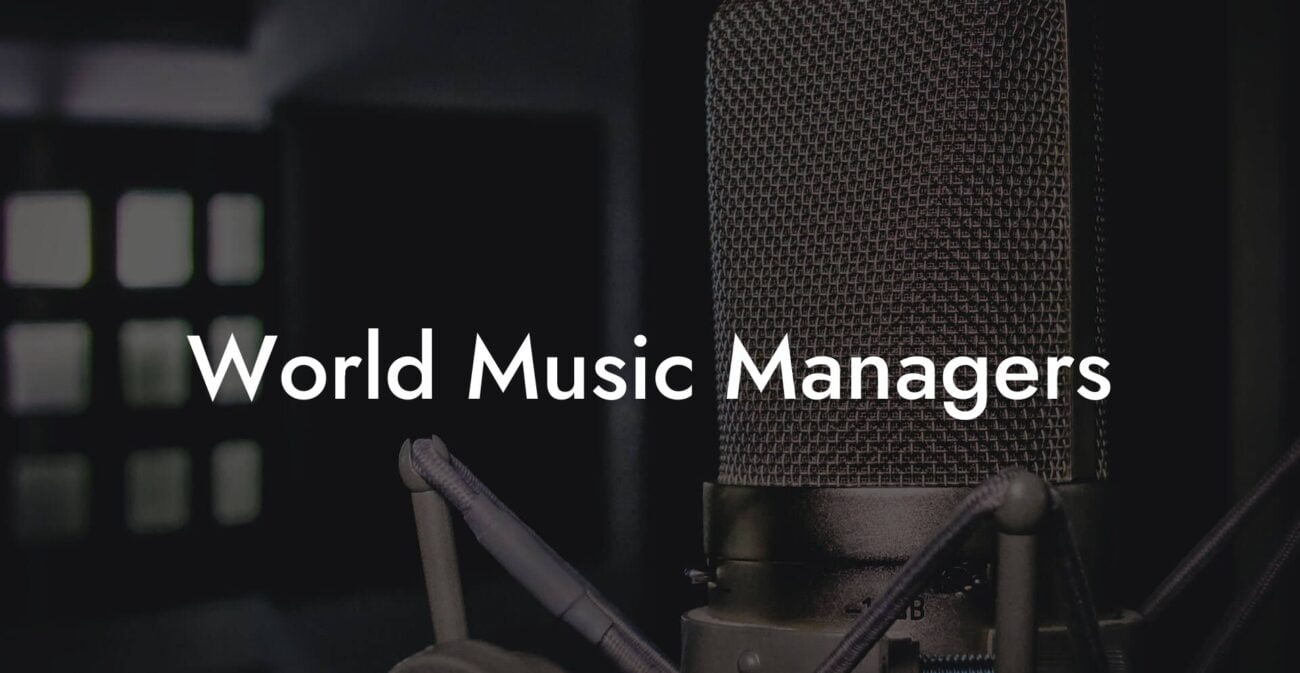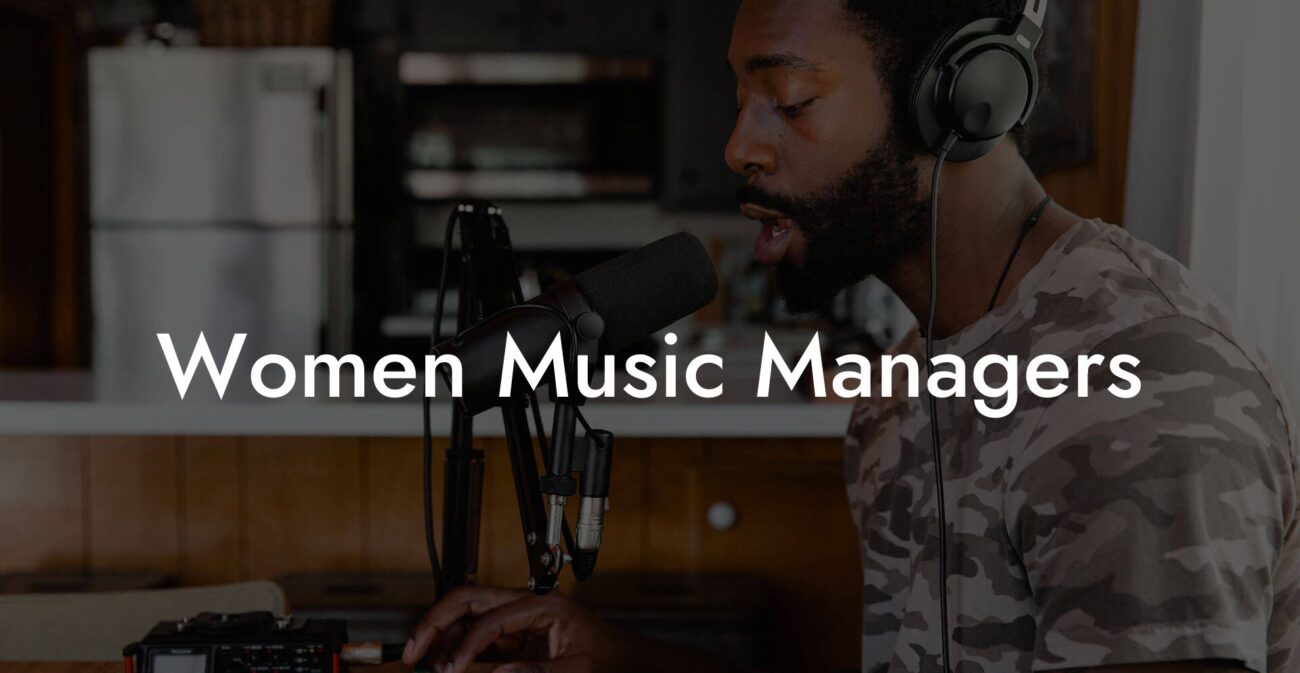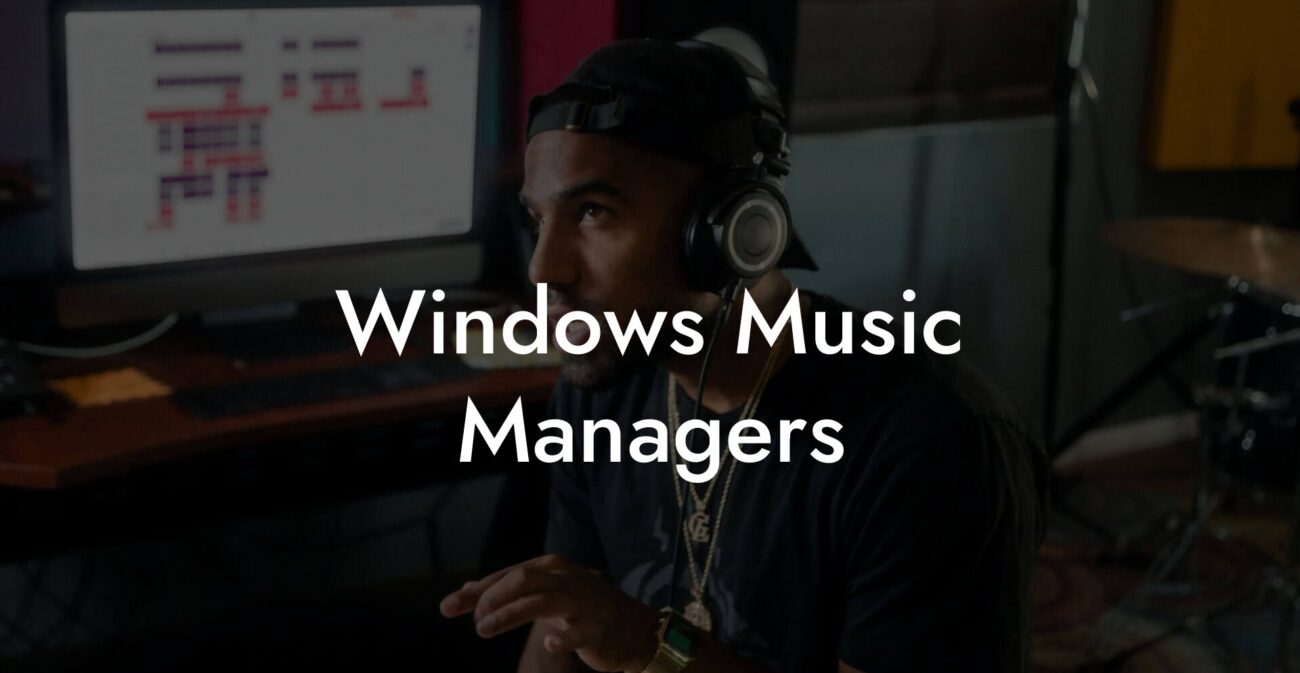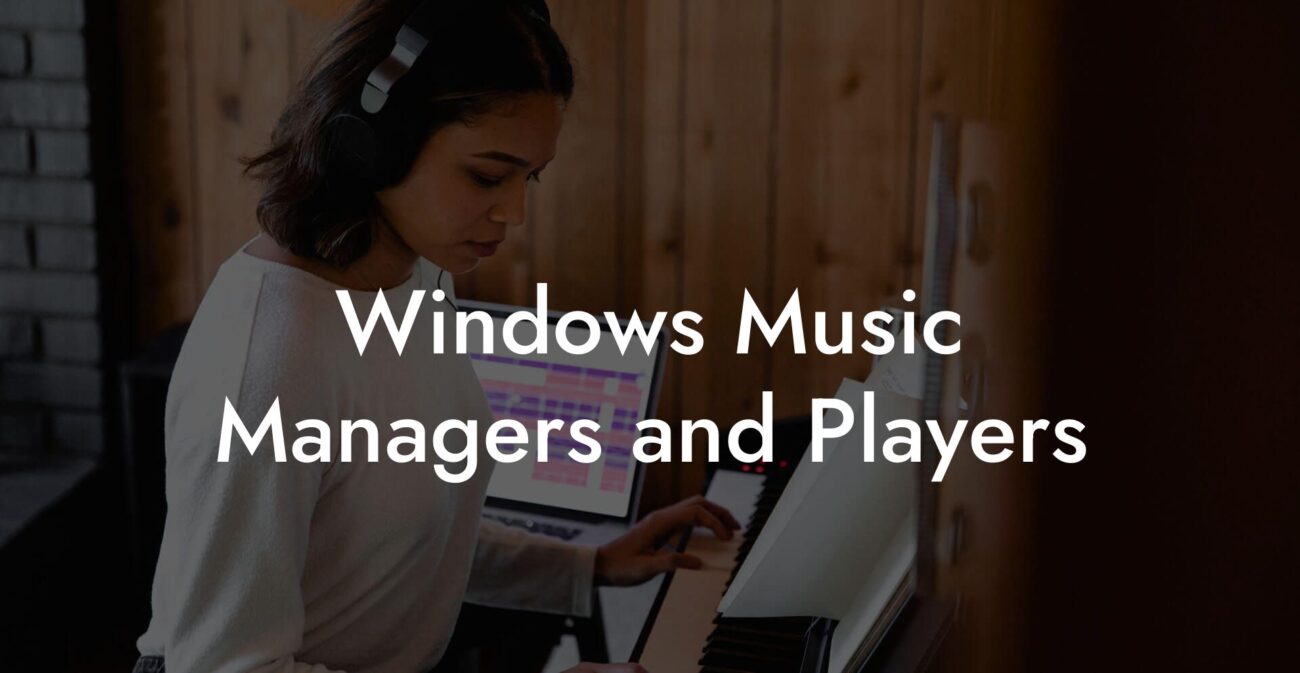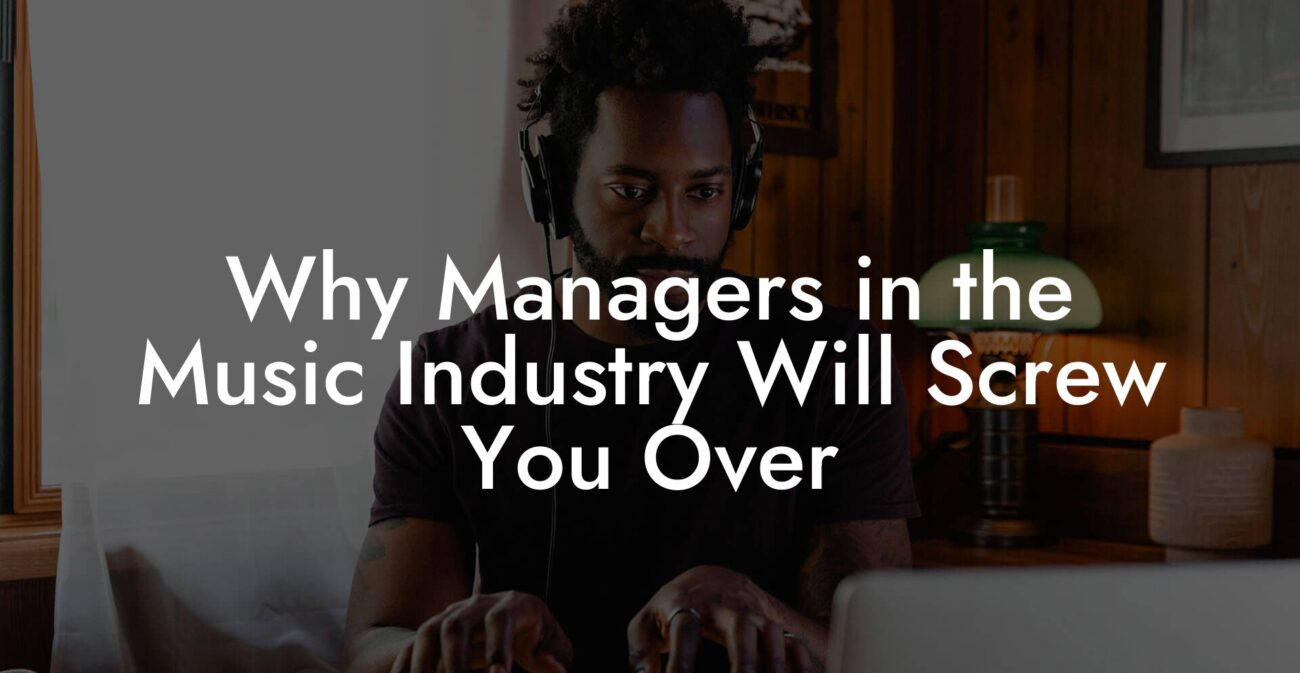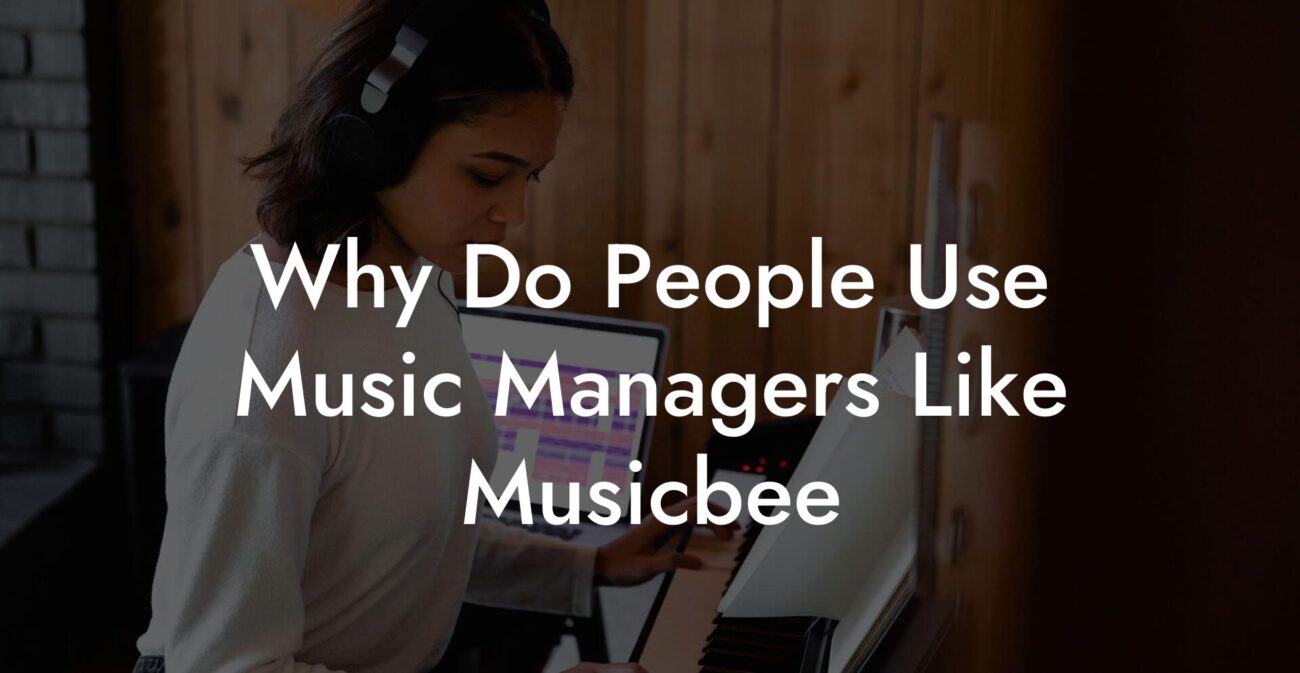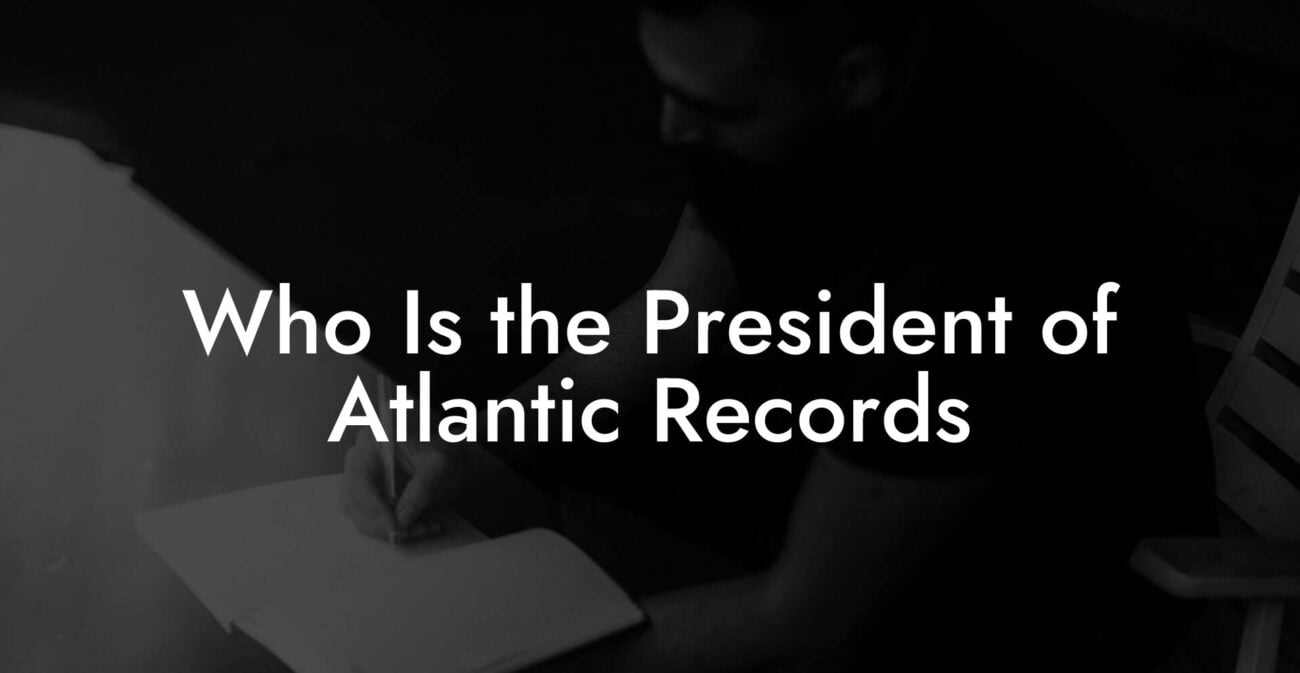Songwriting Advice
What Role Do Managers Play in the Music Industry?
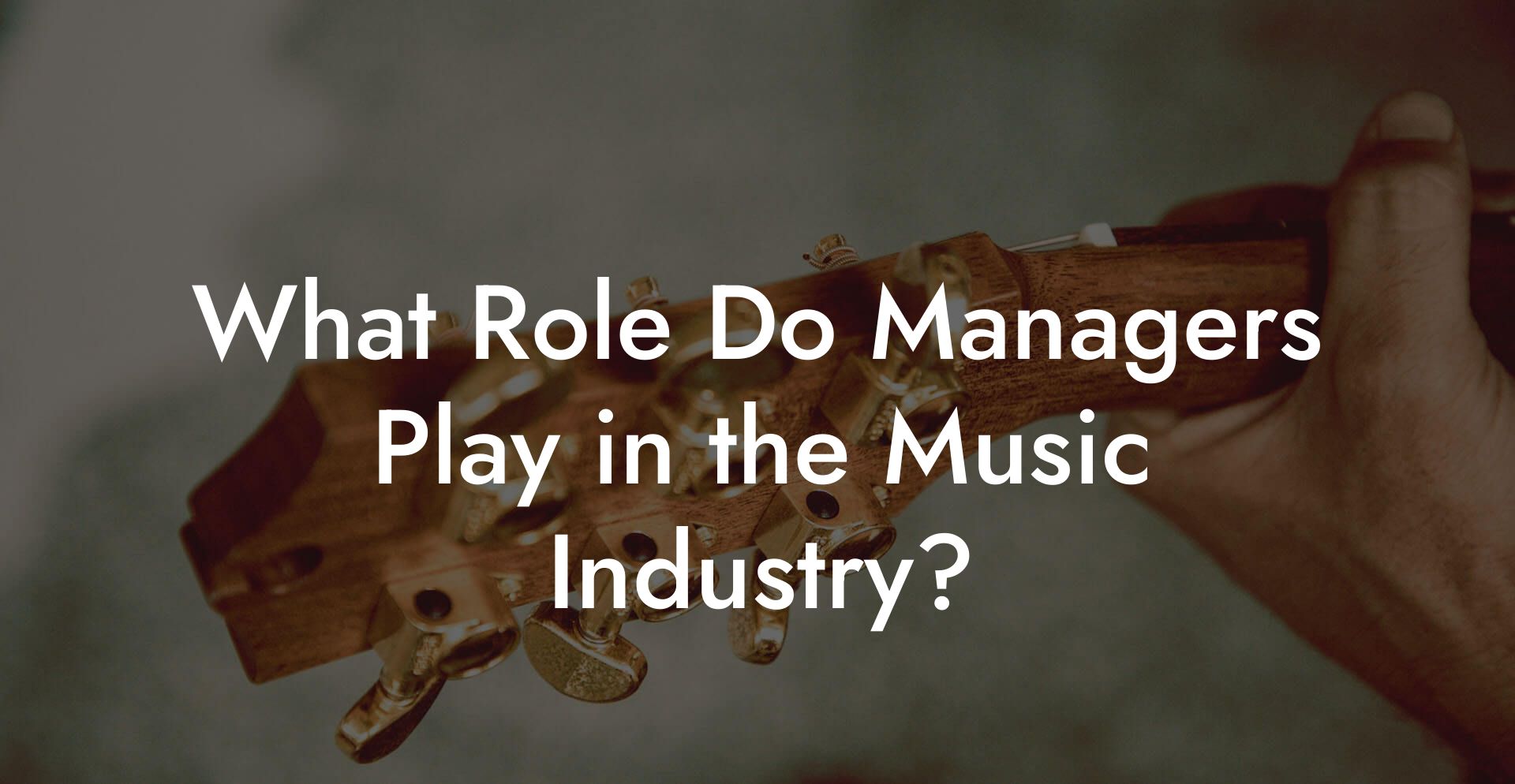
Picture this: you're a budding musician with a killer song idea, and as you’re scribbling down lyrics on your phone using Lyric Assistant, you suddenly realize that while your melody is fire, navigating the music industry can feel like trying to decode hieroglyphics while blindfolded. That’s where music managers come in, imagine them as your personal GPS, guiding you through the wild, unpredictable maze of record deals, promotions, and industry networking. In this deep-dive, we'll explore what role managers play in the music industry, how they can skyrocket a promising artist's career, and why forging the right partnership with your manager might just be the secret sauce behind your next chart-topping hit.
Quick Interruption: Ever wondered how huge artists end up fighting for their own songs? The answer is in the fine print. Learn the lines that protect you. Own your masters. Keep royalties. Keep playing shows without moving back in with Mom. Find out more →
Quick Interruption: Ever wondered how huge artists end up fighting for their own songs? The answer is in the fine print. Learn the lines that protect you. Own your masters. Keep royalties. Keep playing shows without moving back in with Mom. Find out more →
Quick Links to Useful Sections
- The Music Industry Ecosystem: Where Managers Fit In
- Key Responsibilities: What Does a Music Manager Actually Do?
- How Music Managers Elevate Artist Careers
- Behind the Scenes: The Manager’s Playbook
- 1. Data-Driven Decisions
- 2. Relationship Building
- 3. Trendspotting and Innovation
- 4. Crisis and Reputational Management
- The Art of Picking the Perfect Manager
- 1. Shared Vision and Values
- 2. Track Record and Reputation
- 3. Communication and Trust
- 4. Flexibility and Adaptability
- 5. A Collaborative Spirit
- Essential Skills: What Makes a Manager Stand Out?
- 1. Negotiation Savvy
- 2. Deep Industry Knowledge
- 3. Superior Organizational and Time-Management Skills
- 4. Creative Problem-Solving
- 5. Authentic Communication
- Tech and Innovation: Modern Tools for the Modern Manager
- Case Studies: When Managers Make History
- Case Study 1: The Bedroom Producer Turned Chart-Topper
- Case Study 2: Reinventing an Indie Artist’s Brand
- Case Study 3: Navigating Crisis with Style
- Resources and Community Support: Your Next Steps
- Frequently Asked Questions on Music Managers
- Your Musical Journey: Ready to Rock the World?
The Music Industry Ecosystem: Where Managers Fit In
The modern music industry isn’t just about catchy hooks and viral TikTok dances, it’s a sprawling ecosystem with countless moving parts. Managers are among the most critical players in this elaborate game of musical chairs. They’re the ones who help you navigate contracts, connect with A&R representatives, leverage streaming algorithms, and even keep tabs on industry trends that could disrupt your creative flow.
Think of the music industry as a bustling city. You've got venues (concert halls), skyscrapers (record labels), and underground cafes (independent gigs). In this city, the manager is like your personal concierge and guide rolled into one, they know every back alley, hidden opportunity, and shortcut to success. Whether you're a millennial with vinyl dreams or a Gen Z digital native, understanding your manager's role will equip you to take charge of your musical destiny.
In a world where the line between art and business blurs, music managers help balance the scales. They allow you to focus on what you do best, creating the magic, while they tackle the logistics, negotiations, and networking that can otherwise slow you down. From booking gigs and managing social media collaborations to negotiating record deals and fostering brand partnerships, managers are the unsung heroes ensuring that your artistry shines brighter than ever.
Key Responsibilities: What Does a Music Manager Actually Do?
When you think about a music manager, you might picture someone with a briefcase and a Rolodex of contacts, but their skill set extends far beyond traditional business management. Here are some of the essential responsibilities a music manager takes on:
- Career Strategy and Vision: A manager helps craft the long-term vision for your career, aligning your creative goals with practical business objectives. They assess market trends, help you identify your brand’s unique voice, and set the roadmap for success.
- Networking and Industry Connections: They leverage an extensive network of contacts, from booking agents to publicists, from seasoned producers to influential festival organizers, to open doors that most emerging artists could only dream of.
- Contract Negotiations: Whether it's a record label deal, a publishing arrangement, or a licensing agreement, a savvy manager ensures that every contract works in your favor. They’re your first line of defense against unfavorable terms.
- Day-to-Day Administration: From scheduling rehearsals and studio sessions to coordinating social media posts, managers handle the logistics that allow you to focus solely on your art.
- Personal Branding and Marketing: In a digital age where authenticity meets viral marketing, managers help shape your image. They strategize your social media presence, merchandise drops, and public appearances to create a cohesive, compelling brand.
- Tour and Event Management: Once your tracks start spinning on the radio, managers arrange live performances, organize tours, and negotiate festival slots, ensuring that your live shows build momentum and grow your fan base.
- Crisis Management: When things go south, a canceled gig, a social media snafu, or even a creative impasse, a trusted manager is there to steer you through the storm.
In short, a manager is all about maximizing your creative potential while tackling the business burdens that can derail a promising career. Their role is dynamic and ever-evolving, perfectly suited to the fast-paced, digital-first world of modern music.
How Music Managers Elevate Artist Careers
Let’s get real: having a fantastic song means little if it never reaches the right ears. That's where a manager’s impact becomes undeniably clear. Managers leverage their industry know-how to give artists the exposure and opportunities needed to thrive.
Consider this, while you might be a pro at writing lyrics and creating beats using Lyric Assistant, diving into the murky waters of music marketing and brand partnerships can be daunting. Managers bridge that gap by:
- Curating Strategic Collaborations: They identify and arrange creative partnerships, be it with other artists, influencers, or even brands, that amplify your reach and resonate with your target audience.
- Maximizing Digital Presence: Managers harness the power of social media, streaming platforms, and online communities. They work behind the scenes to ensure your music lands on curated playlists, gets shared like wildfire, and garners buzz among key influencers.
- Securing Media Coverage: From interviews with music blogs to features on influential podcasts, a good manager knows how to get your name in front of millions without you having to chase every reporter.
- Enhancing Fan Engagement: By organizing meet-and-greets, crowd-sourced campaigns, and exclusive content drops, managers create a loyal community that isn’t just about streaming numbers, but about genuine fan love.
The result? More gigs, more streams, and a brand that feels as authentic online as it does on stage. In the hyper-connected digital era, it’s not enough to be talented, the right connections and strategic marketing initiatives can catapult your musical journey from the bedroom studio to the big leagues.
Ultimately, managers empower artists to keep their creative spark alive. While you get busy perfecting your lyrics with Lyric Assistant, your manager is busy forging partnerships, negotiating deals, and making sure that every opportunity is a stepping stone to your next big breakthrough.
Behind the Scenes: The Manager’s Playbook
Ever wonder what really goes on behind the glitzy album launches and sold-out concerts? There’s a hidden playbook that every savvy music manager relies on, one that’s equal parts art and science. Here’s a sneak peek into the secret strategies and tools managers use to keep the momentum rolling:
1. Data-Driven Decisions
In today’s music scene, every play, like, and share tells a story. Managers dive into streaming analytics, social media metrics, and fan demographics to craft bespoke marketing plans. By understanding which tracks get the most traction and which posts ignite fan conversations, they pivot strategies in real time.
2. Relationship Building
Think of networking as the lifeblood of the music industry. Managers invest time in nurturing relationships with key industry figures. Whether it’s a casual lunch meeting with a festival promoter or an industry conference that doubles as a masterclass in the art of persuasion, these connections are invaluable.
3. Trendspotting and Innovation
Trends in music change faster than you can say “viral hit.” Good managers are always one step ahead, monitoring cultural trends, emerging genres, and even shifts in consumer behavior. They’re the ones who know when to push an artist towards experimental sounds or when to double down on nostalgia-fueled anthems.
4. Crisis and Reputational Management
Not every day is a red carpet event. When things go awry, a controversial tweet, a canceled event, or simple miscommunication, a manager’s experience in crisis management is critical. They’re prepared to handle backlash, spin a narrative, and protect an artist’s reputation with swift, strategic responses.
The playbook is a blend of old-school hustle and modern digital tactics. In an industry where a single misstep can spiral into a PR nightmare, having a manager who knows the ropes might just be the safety net every artist deserves.
The Art of Picking the Perfect Manager
If you’re at the crossroads of deciding whether to take the plunge into a manager-artist relationship, you’re not alone. The process is as crucial as finding the right band members or nailing that perfect lyric. Here are some pointers to help you identify that ideal partner in music:
1. Shared Vision and Values
First things first: ensure your manager not only understands your music but also believes in your artistic vision. Compatibility is key. A manager who’s as passionate about your sound as you are will work tirelessly to help you realize your dreams.
2. Track Record and Reputation
What’s their playlist of success? Look into their past work. Have they managed artists who have gone on to break records, win awards, or simply build a sustainable career? A seasoned manager with a robust network is more likely to open the right doors.
3. Communication and Trust
A successful artist-manager relationship is built on transparency and trust. You should feel comfortable sharing your creative ideas, your doubts, and even your worst mixtapes. Open lines of communication are the bedrock of collaboration.
4. Flexibility and Adaptability
The music industry is a shifting labyrinth. Look for a manager who’s agile and prepared to adapt to changes, be it new technology, evolving music trends, or unexpected challenges. This adaptability ensures that when the tides of the industry turn, you'll be ready to ride the waves.
5. A Collaborative Spirit
Your relationship with your manager should feel like a collaborative jam session, not a one-sided lecture. They should be more than just a fixer-upper for your career, they must be a partner who celebrates your wins and supports you through the struggles.
Evaluating these factors can be daunting, but remember: the right manager will not only propel your career forward but also make the journey enjoyable and creatively fulfilling.
Essential Skills: What Makes a Manager Stand Out?
In a competitive industry where every artist is chasing their breakthrough moment, a manager’s abilities can make or break a career. Here are some of the standout skills that set the best managers apart:
1. Negotiation Savvy
At the heart of every major deal lies a well-honed negotiation skill. A top-notch manager knows how to negotiate with record labels, booking agencies, and brand partners, ensuring that the contract terms reflect your best interests. Whether it’s securing a favorable split on royalties or gaining control over your creative output, negotiation is a non-negotiable skill.
2. Deep Industry Knowledge
The music industry is complex, with ever-changing rules and emerging trends. A manager who stays up-to-date with legal developments, market shifts, and technological innovations is an invaluable asset. Their knowledge helps anticipate challenges and seize opportunities before they become mainstream.
3. Superior Organizational and Time-Management Skills
Balancing touring schedules, studio sessions, social media calendars, and personal time requires a high degree of organization. Managers excel at coordinating these elements, ensuring that every aspect of your career runs like a well-oiled machine.
4. Creative Problem-Solving
Let’s face it, the road to stardom is paved with unexpected obstacles. A manager who can think on their feet, brainstorm creative solutions, and turn setbacks into opportunities is worth their weight in gold. They’re the ones who can transform a canceled venue into a pop-up live stream, or a lukewarm single into a viral remix.
5. Authentic Communication
Honesty, clarity, and empathy go a long way. Managers who communicate in an open, relatable manner not only build trust but also foster an environment where creative ideas can flourish. Authenticity is key, especially when your brand is built on a genuine connection with your audience.
These skills, combined with passion and relentless drive, distinguish a mediocre manager from an industry trailblazer. For an artist looking to make a lasting impact, aligning with a manager who brings these attributes to the table can be a game-changing decision.
Tech and Innovation: Modern Tools for the Modern Manager
The digital revolution has spurred a significant evolution in how music managers work. Gone are the days of solely relying on phone books and personal contacts; today, the best managers harness cutting-edge technology to drive success. Here’s a look at how innovation is reshaping the role:
Data Analytics and Streaming Platforms: Modern managers dive deep into real-time data from streaming platforms like Spotify, Apple Music, and YouTube. By analyzing audience demographics, engagement rates, and playlist placements, they can adjust marketing campaigns and even guide the creative process.
Social Media Management Tools: Whether it’s scheduling posts, tracking trends on Twitter, or analyzing Instagram engagement, digital tools empower managers to maintain a dynamic online presence. This not only increases fan interaction but also amplifies your music across multiple channels.
Virtual Collaboration Platforms: In a world where remote work and virtual events are the new norm, managers utilize tools like Slack, Trello, and Zoom to coordinate with your team, be it your producer, publicist, or even your fellow bandmates, smoother than ever.
Contract and Project Management Software: With cloud-based solutions, music managers keep track of contracts, deadlines, and project milestones, ensuring that every detail is meticulously organized. This level of efficiency translates into a seamless workflow that leaves more time for creativity.
Embracing technology not only streamlines everyday tasks but also positions your career at the forefront of industry trends. For the digital-savvy musician, a manager who leverages innovation is like having an all-access pass to the future of music.
Case Studies: When Managers Make History
Abstract theories and lists of responsibilities are all great, but nothing brings a point home like real-life success stories. Let’s dive into a few case studies that demonstrate how a collaboration with a dedicated manager can be the spark behind a meteoric rise to stardom.
Case Study 1: The Bedroom Producer Turned Chart-Topper
Imagine spending countless nights perfecting beats in your home studio, until a manager with a knack for discovering hidden talent hears your tracks on SoundCloud. With their deep industry connections and commitment to your vision, they secure you studio time with a renowned producer, organize a strategic social media campaign, and negotiate a record deal that respects your creative autonomy. The result? A track that climbs the charts faster than you could scroll through your feed.
Case Study 2: Reinventing an Indie Artist’s Brand
An indie singer-songwriter with a cult following finds that, while her music resonates deeply with listeners, her online presence is scattered. Enter a manager who reimagines her brand, coordinating a series of Instagram live sessions, exclusive acoustic showcases, and even a quirky merchandise line that becomes an instant hit. With every element of her career now harmoniously aligned, her fan engagement skyrockets, turning casual listeners into lifelong supporters.
Case Study 3: Navigating Crisis with Style
Not every success story starts with everything going right. One up-and-coming rapper encountered a PR mishap after a misunderstood social media post went viral for all the wrong reasons. A seasoned manager stepped in, skillfully handling the crisis, reshaping the narrative, and launching a charity campaign that resonated with the community. The incident, instead of derailing his career, actually deepened his connection with fans and showcased his capacity for growth and authenticity.
These case studies reveal that behind every successful artist is a manager who not only understands the industry’s pulse but also knows how to turn challenges into opportunities. Whether you’re just starting out or looking to reinvent your brand, the right manager can be the catalyst that transforms potential into history.
Resources and Community Support: Your Next Steps
So, you’re pumped about the possibilities, and now you’re wondering where to go from here. Imagine your career as a mixtape, every track is a step towards your breakthrough hit, and every connection made through networking or community support is a beat that adds rhythm to your journey.
Here are some actionable next steps and resources that will help you harness the power of a manager and energize your music career:
- Join Music Communities: Whether it’s online forums, local meet-ups, or social media groups built around independent artists, these communities are a goldmine for networking and support.
- Attend Industry Meetups and Conferences: Events like South by Southwest (SXSW), virtual music summits, and local industry panels provide a chance to meet potential managers and learn firsthand about industry trends.
- Educate Yourself: Dive into podcasts, webinars, and blogs dedicated to music management and industry insights. Understanding the intricacies of music business negotiations and digital marketing will empower you to ask the right questions.
- Leverage Professional Services: Use platforms that connect artists with professionals, from legal advisors to digital marketers, ensuring that you’re not alone when critical decisions need to be made.
- Experiment with Lyric Assistant: Fine-tune your songwriting with Lyric Assistant while your manager works on the broader career strategy. This dynamic duo will keep both your creative spark and business momentum alive.
Remember, you’re not just an artist, you’re a brand with a message. With the right resources and a supportive community, the road ahead is more than just manageable; it’s brimming with potential.
Your next step? Connect, learn, and thrive. Embrace the adventure of building your career alongside professionals who understand the pulse of the industry, and watch as your music soars to new heights.
Frequently Asked Questions on Music Managers
We know you might have a few questions swirling around about the role of managers in the music industry. Check out these FAQs for some quick answers:
1. What exactly does a music manager do?
A music manager is your go-to person for guiding your career. They connect you with industry contacts, negotiate contracts, manage day-to-day operations, enhance your digital presence, and strategize your overall career growth.
2. Do I really need a manager to succeed in music?
While success is possible without one, having a manager amplifies your chances by handling business complexities, opening up networking opportunities, and letting you focus on your creative side.
3. How do I know if I have the right manager?
Look for common values, clear communication, a proven track record, and a shared vision for your music. A good manager should empower you, not hold you back.
4. Can a manager help with social media and digital marketing?
Absolutely! In today’s digital world, a manager plays a key role in building your online presence, from managing social media strategies to leveraging streaming analytics for career growth.
5. How are managers compensated?
Managers typically work on commission, a percentage of your earnings. Details are usually negotiated and outlined in your contract.
6. What should I look for in a contract with a manager?
Ensure that the contract clearly defines roles, commission rates, duration, and exit clauses. It’s also wise to involve a legal advisor to review and safeguard your interests.
7. How essential is networking in a manager's role?
Networking is fundamental. A manager’s industry connections can open doors to collaborations, media exposure, and vital career opportunities that might otherwise be out of reach.
8. What modern tools do managers use to boost artist careers?
Managers today harness data analytics on streaming platforms, use cutting-edge social media tools for engagement, and employ virtual collaboration and project management software to streamline workflows.
These FAQs are designed to help you understand the indispensable role a music manager plays and how they can be the catalyst for your success.
Your Musical Journey: Ready to Rock the World?
At the end of the day, a music manager is more than just a business partner, they’re your cheerleader, strategist, and behind-the-scenes magician all wrapped into one. As you let your creativity flow and craft unforgettable lyrics using Lyric Assistant, remember that building your career in music is as much about the art as it is about the hustle.
With the insights shared above, you’re now equipped to evaluate the role of music managers, understand how they can elevate your career, and recognize the qualities that separate a good manager from a great one. Whether you’re leveling up from bedroom recordings to streaming stardom or shaking up your brand with bold, new ideas, the right manager can be the game changer that propels your career into the stratosphere.
So go ahead, reach out, network, and explore the resources available to you. Embrace collaboration, trust in your unique vision, and let those killer lyrics transform into musical magic that resonates across the globe. Your journey to musical success is just beginning, and with the right support, the spotlight is yours for the taking.
Rock on, and keep pushing the boundaries of your creativity. The world of music is vast and ever-changing, and your story is waiting to be heard, one lyric at a time.


